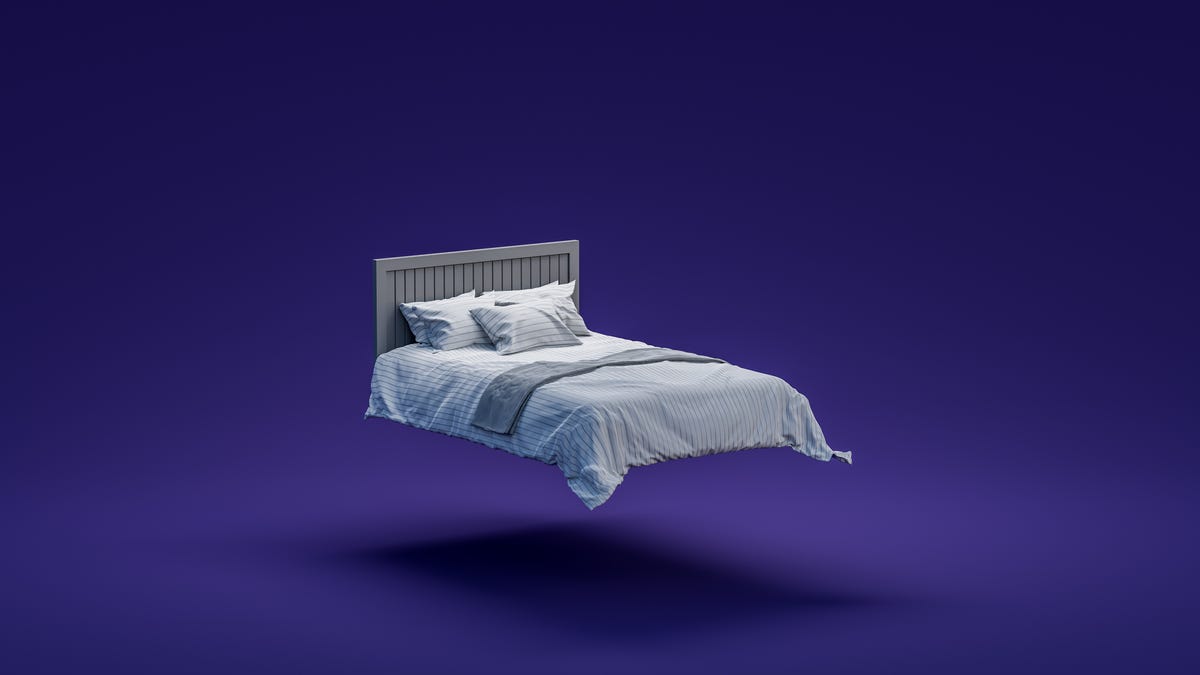 Why You Can Trust CNET
Why You Can Trust CNET 7 Sleep Myths Debunked and Real Tricks to Achieve Better Rest
Rethink what you know about sleep as we debunk some of its most common myths.

We all believed in sleep myths at one point or another, like when we were young and thought the tooth fairy would leave a small payment under our pillow for a lost baby tooth. While we eventually stop believing in the tooth fairy, there are still plenty of other myths that are commonly believed, even in adulthood.
By practicing bad sleep hygiene you keep yourself from getting the restful sleep you need to maintain good mental and physical health. Sleep plays an integral role in your body and its functions, from your mood and decision making to your immune system and heart health. By identifying bad sleep habits, you set yourself on the right track for restorative sleep that actually makes you wake up feeling refreshed.
Below, I debunk common sleep myths and practices you may not know are bad for sleep and offer tips on achieving better rest.
Myth: Not everyone needs 8 hours of sleep
Truth: Besides a little fatigue and grogginess, you may not immediately recognize the toll poor sleep takes on your health. But studies show that sleep deprivation can damage all aspects of your health. Especially in the long term.
Take it from the experts and some of society's most successful entrepreneurs: A full night's rest is crucial in living a long, happy life.
Myth: Scrolling on your phone before bed is harmless
Truth: We're all guilty of endless scrolling on our phones when we should be gearing up to go to bed, but it's not just the addicting reels keeping you up.
Electronic devices like our mobile phones and laptops emit blue light that delays melatonin production and messes with your circadian rhythm, keeping you from feeling sleepy when you should be. Wearing blue light glasses in the evening, or during the day if you work at a computer may help.
Myth: Sleeping shirtless or nude helps you sleep cooler
Truth: If you're a hot sleeper you might think less clothing equals a cooler, comfortable sleep, but nakedness is actually working against you in this circumstance.
By sleeping shirtless or in the nude, your sweat has nowhere else to go but your sheets, creating a sweaty, steamy and damp sleeping surface. Wearing a lightweight, breathable pajama shirt can help wick sweat away and keep you more comfortable.
Myth: Alcohol or a 'nightcap' before bed helps sleep
Truth: An alcoholic drink before bed is referred to as a nightcap. While alcohol is a sedative that can make some feel sleepy, it ends up harming your quality of sleep in the long run.
Researchers from a study in Finland found a small amount of alcohol reduced sleep quality by almost 10%, by 24% after moderate alcohol consumption and by almost 40% after heavy alcohol consumption. Alcohol disrupts your body's circadian rhythm and limits time spent in restorative, slow-wave sleep.
Myth: Consistent snoring is normal
Truth: Snoring due to a cold or occasional alcohol consumption isn't a cause for concern, but regular snoring that's loud and disruptive could be a sign of sleep apnea. Sleep apnea is a disorder that causes your breathing to stop and restart constantly while you sleep, and could potentially be dangerous because it prevents your body from getting enough oxygen.
If you suspect you or a loved one has sleep apnea, reach out to your doctor who can help diagnose and discuss treatment.
Myth: Leaving a TV on before bed can help you sleep
Truth: Unless you're watching TV about a relaxing waterfall in the pitch black of night, your TV is likely disrupting your sleep. The blue light from your television messes with your circadian rhythm and melatonin production. At the same time, abrupt changes in sound and loud noises can disrupt sleep.
I used to fall asleep with the TV on, and without fail the George Lopez show theme song would wake me up. Instead, try listening to relaxing sounds before bed with sleep headphones or curating a sleep playlist.
Read more: Best Melatonin Supplements
Myth: Napping is for lazy people
Truth: There's nothing wrong with a midday nap – the key is to limit your nap to about 30 minutes or shorter to avoid entering your deep sleep stage. An afternoon power nap can help ease stress, boost memory, better your mood and even improve your performance at work.
Read more: How to Take a Nap Without Ruining Your Sleep

